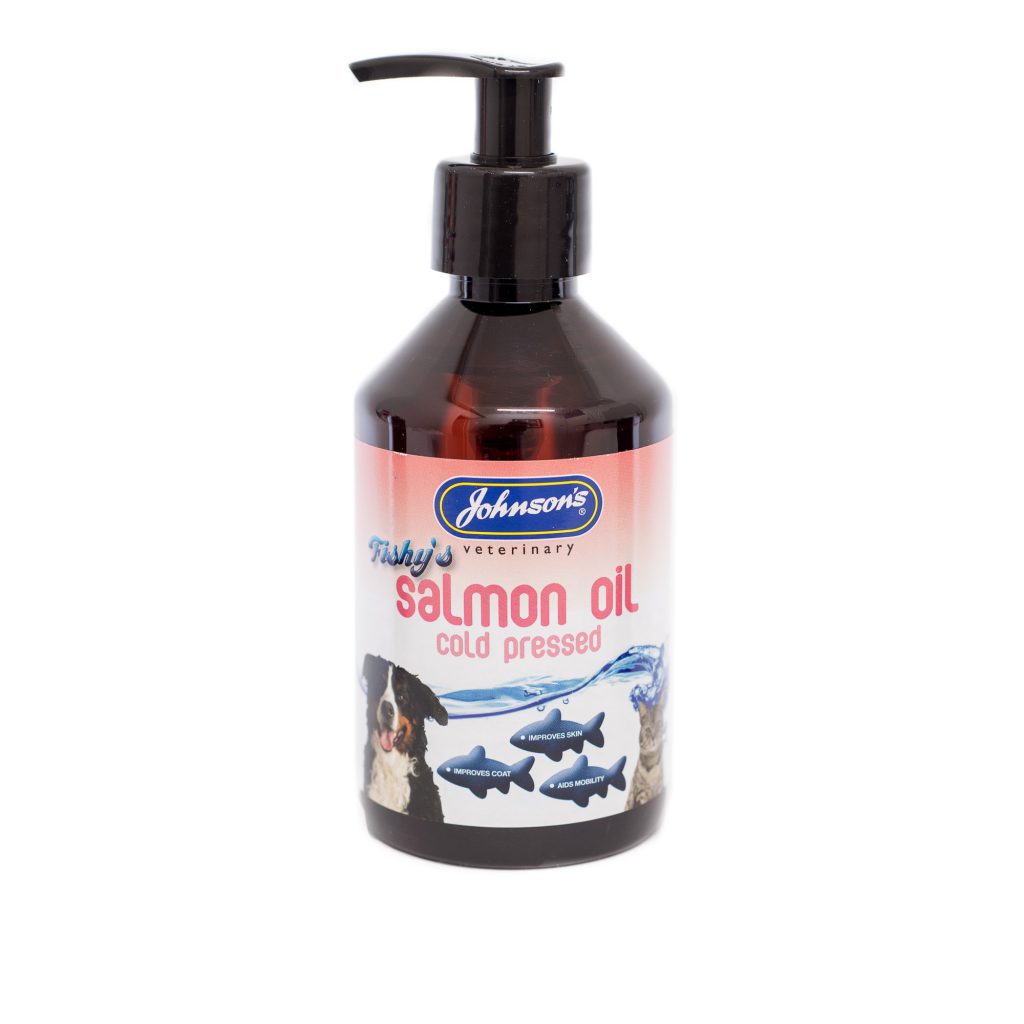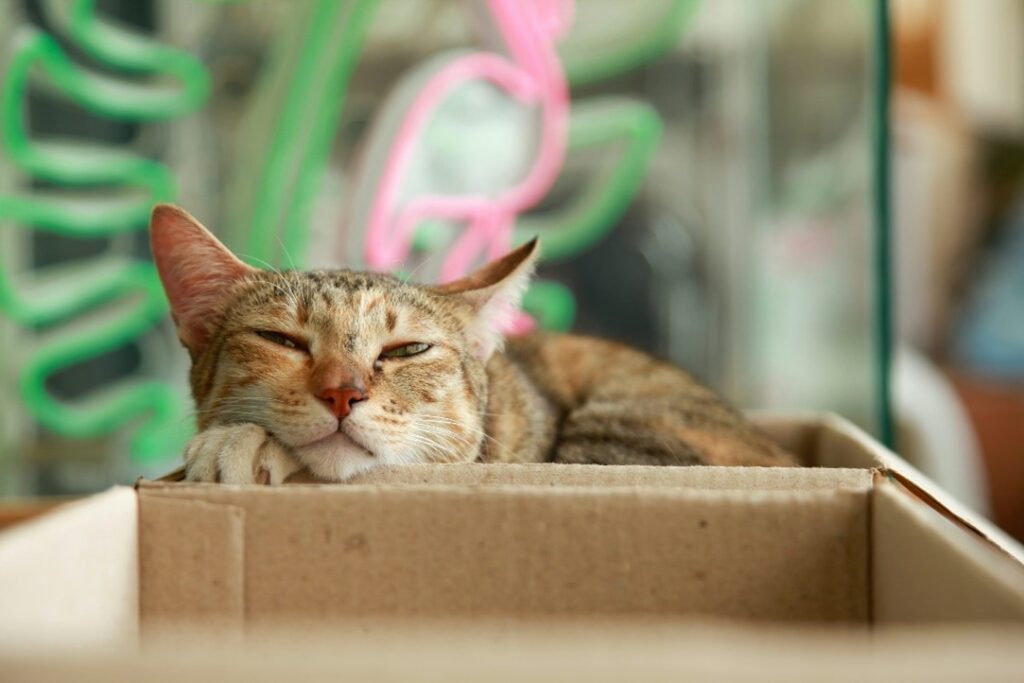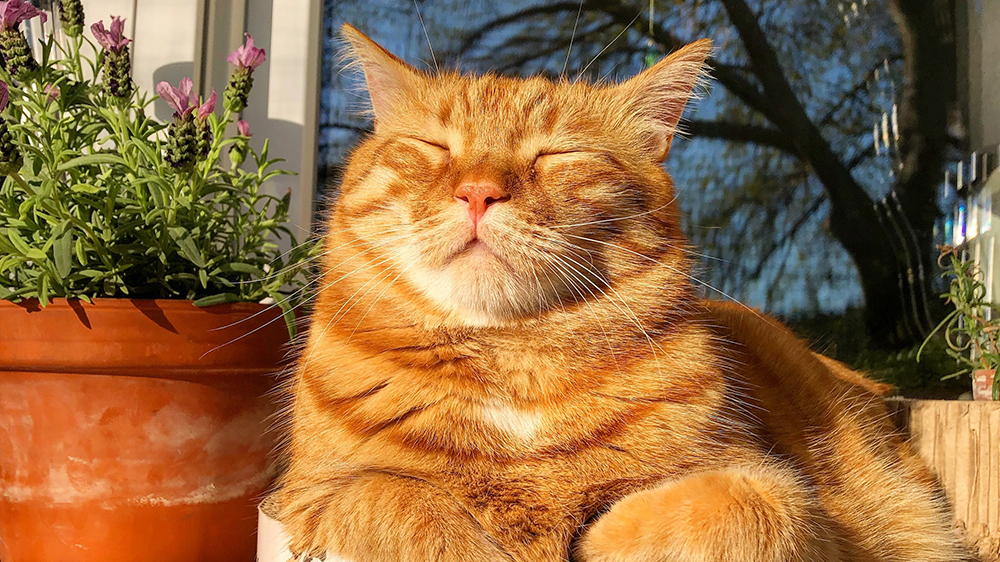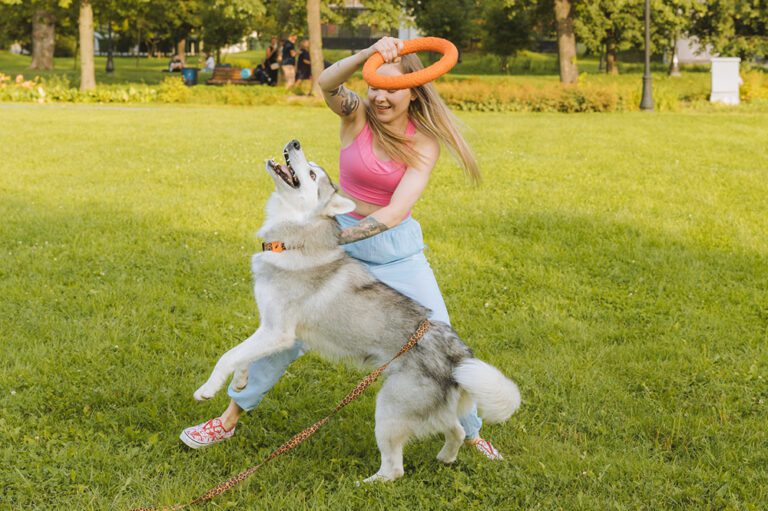It’s international cat day! This year it’s time to #celebratecats, particularly the golden oldies out there. Maybe you’ve had your old friend since they were a kitten or you’re looking to adopt an older cat to give it a wonderful retirement. In this blog we’re talking about all things mature moggies!
At what age is a cat senior?
A cat may be considered mature once it reaches 7 years old, however, once they reach the age of 11, Cats Protection will grant them ‘senior kitizen’ status. Nevertheless, your little companion may still have kitten-like behaviors well into its mature and senior years. Here’s a table of what age your cat is considered to be human years.
How to know my cat is changing to a senior cat
The average age for a UK cat to live is 11.7 years, though some cats can live well into their 20’s, like world record holder Flossie who turns 28 in later this year.
You will know your cat is approaching their senior years by looking out for these things:
Grooming & Appearance
As cats age, they become less efficient at grooming themselves as they struggle to reach certain areas due to potential joint issues or disease. Also, their fur may become greasy to touch and prone to matting.
Weight Change
Your little feline friend may experience weight loss or gain quickly due to common health issues such as diabetes or kidney disease. This can also be a sign of dental problems, as eating can be painful. If you are worried about your senior cat’s sudden weight change, it’s best to book them in for a check-up with the vet.
Behavioural Differences
An older cat may sleep more than they used to, with some seniors snoozing for up to 20 hours per day. You may also find they’re less playful and prefer to snuggle, but this isn’t a concern in older cats. Just like ageing humans, they want to take it easy!
How to care for a senior cat
In your cats’ golden years, it’s important to treat them according to their needs as senior animals. You will need to focus on their behaviour and keep an eye out for potential problems cropping up.
Preventative Healthcare
Cat supplements are great if you feel your pet needs a bit of a boost. You may need to increase vet check-ups so any issues are dealt with swiftly.
What can I give my senior cat with arthritis?
Cats who are struggling to move around easily or are slowing down might find that our range of 4Joints capsules help with arthritis or supplements such as cod liver oil helpful. Alternatively, a small amount of turmeric at mealtime can help aid joint mobility and support immunity.
Is senior cat food necessary?
As your kitty grows old, it’s wise to alter their diet accordingly. Many supermarkets and specialist pet shops stock food for senior cats, taking into consideration the dental and appetite problems which mature cats often face. Cat’s Protection recommend feeding your senior cat small meals little and often, as they may be reluctant to try new foods. You can also make mealtime more exciting by introducing puzzle toys and games which encourage eating.
And adding supplements to your pet’s diet has never been easier! Our high quality, cold pressed and responsibly sourced Fishy’s Salmon Oil can be simply added to into their food, boosting levels of DHA, EPA, Omega 3 & 6 to help soothe their skin, aid joint mobility and support their immune system.

Senior cat friendly home
Huge changes don’t need to be made to your home to accommodate for your ageing cat. Small things like adding rugs on wooden or laminate floors to make them less slippy, placing their food and litter tray in accessible places and ensuring they’ve got a comfortable sleeping spot can make all the difference.
Grooming
As mentioned previously, your senior cat may be struggling with grooming and in need of a helping hand. Some cats really don’t like water, so why not try a dry shampoo to freshen up their coat? Along with regular brushing and nail trims, their fur and claws can be kept in tip top condition with a little bit of tlc.
Playing with your senior cat
Just because your cat isn’t a kitten anymore doesn’t mean they don’t want to play! Though your geriatric cat may prefer kicker toys to stretch out their legs rather than chasing a feather on a string. Others may enjoy a puzzle toy with treats which requires less physical activity, but more mental stimulation.
If you want to get creative, you could make them a little DIY cat fort using cardboard boxes – cats love them! When constructing a suitable place for your senior cat, remember to include a single level play area for them to explore and enjoy!

We love the golden oldies here at Johnsons and want to celebrate how rewarding it can be to own an older moggy. Join us on social media and share a photo of your senior cat with the hashtag #celebratecats!







